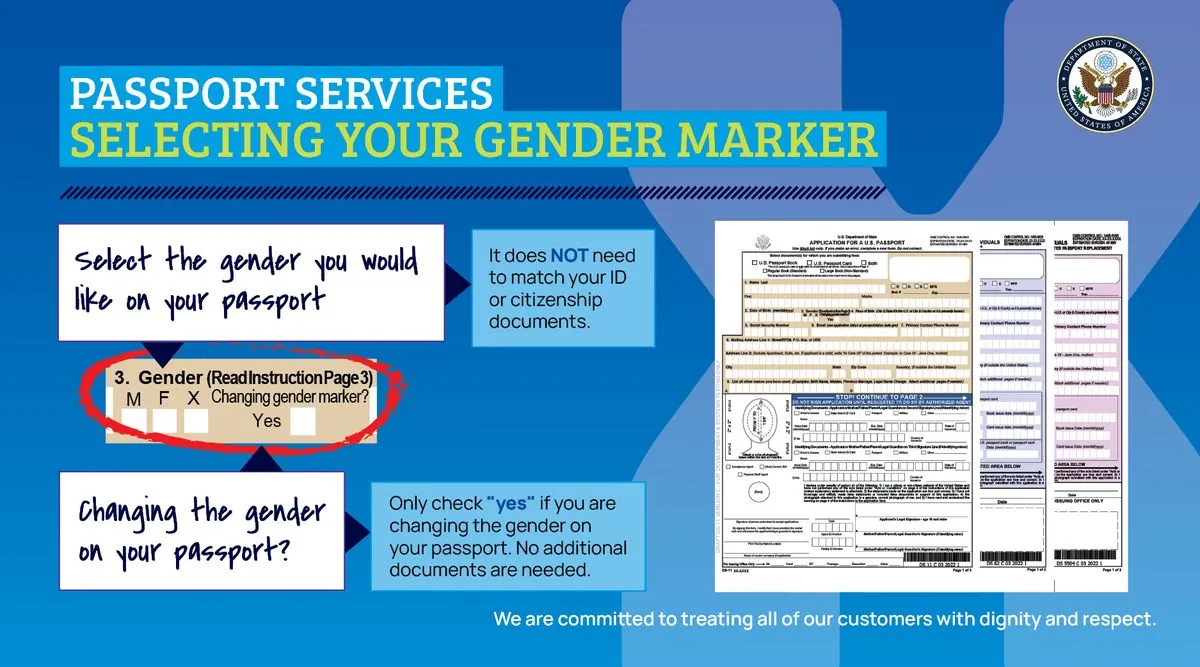UK Sees Record Surge in Gender Recognition Applications
Government data reveals a significant increase in gender change applications, with approvals tripling since 2020. Labour proposes simplifying the process, raising questions about future implementation.

The United Kingdom has witnessed an unprecedented rise in applications for legal gender changes, according to recent government data. In the 2023-24 period, nearly 1,400 individuals sought approval from the Gender Recognition Panel, a body comprising medical professionals and legal experts responsible for authorizing these changes.
The approval rate for these applications stood at an impressive 89.3%, with 1,088 requests granted. This marks a significant increase from the 466 applications received in 2020-21, effectively tripling the number of requests over a three-year span. The surge coincided with a reduction in the application fee for obtaining a gender recognition certificate, which dropped from £140 to £5.
Experts attribute this increase to a growing awareness and acceptance of gender identity issues, particularly among millennials and Generation Z, who constitute the majority of applicants. This trend aligns with the global shift in understanding gender identity, as evidenced by the World Health Organization's decision to remove transgender identity from its list of mental disorders in 2019.

Interestingly, the data reveals a near-equal distribution between individuals transitioning from male to female and those transitioning from female to male. In the first quarter of 2024, 54% of full certificates were granted to those registered male at birth, while 46% were for those registered female at birth. This balance reflects a broader societal recognition of diverse gender identities, reminiscent of cultures that have historically recognized more than two genders, such as the Hijra in South Asia.
The Gender Recognition Panel faced its highest-ever caseload in the year leading up to March 2024, with 888 open applications. This surge raises questions about the capacity of the current system to handle the increasing demand, especially in light of potential reforms.
The Labour Party has pledged to simplify the gender recognition process, proposing to replace the current panel system with a registrar model. While specific details are yet to be outlined, the party aims to streamline what they describe as a "dehumanizing process." Under the existing system, applicants must provide evidence of living in their acquired gender for two years, obtain two doctors' reports, and secure panel approval.
Proposed changes by the government include reducing the requirement to one doctor's report from a gender specialist and eliminating the need to prove living in the new gender. A two-year cooling-off period would be implemented to ensure the gravity of the decision is fully considered.
These potential reforms reflect a global trend towards more accessible gender recognition processes. Some countries, like Argentina and Denmark, have already adopted self-identification models for legal gender changes. However, it's important to note that transgender individuals continue to face higher rates of discrimination and violence compared to the general population, highlighting the ongoing need for societal progress and support.
As the UK grapples with these changes, it's worth considering the broader historical context of gender identity and transition. The first gender reassignment surgery was performed in Germany in 1930, and the term "transgender" was coined in the 1960s. Since then, understanding and acceptance of gender diversity have grown significantly, with milestones such as the election of Europe's first transgender member of parliament in Poland in 2011 and the addition of "cisgender" to the Oxford English Dictionary in 2015.
While the UK moves towards potentially simplifying its gender recognition process, it's crucial to balance accessibility with the gravity of such life-changing decisions. The proposed two-year cooling-off period aims to address this concern, ensuring that individuals have ample time to reflect on their choice.
As society continues to evolve in its understanding and acceptance of gender identity, these legal and administrative changes represent important steps towards greater inclusivity and recognition of diverse gender experiences.


































